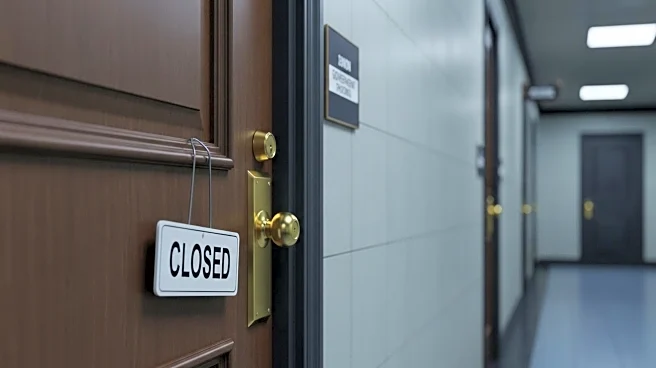What is the story about?
What's Happening?
The U.S. federal government has officially shut down after Congress failed to reach a funding agreement. This development has led to the furlough of approximately 750,000 federal employees, as reported by the Congressional Budget Office. The Trump administration has indicated that some of these furloughs could become permanent. The shutdown is expected to disrupt various government services, including the release of key economic data by the Bureau of Labor Statistics, such as the nonfarm payrolls report. The shutdown's impact extends to areas like mortgage applications, airport security, and national park operations.
Why It's Important?
The government shutdown has significant implications for the U.S. economy and public services. The absence of key economic data could affect financial markets and economic forecasting. Federal employees face uncertainty regarding their employment status and income, which could have broader economic repercussions. The shutdown also highlights ongoing political challenges in reaching budgetary consensus, potentially affecting public confidence in government operations. Businesses and individuals relying on government services may experience delays and disruptions, impacting economic activities and daily life.
What's Next?
As the shutdown continues, pressure will mount on Congress to negotiate a resolution to restore government operations. Stakeholders, including federal employees, businesses, and the public, will be closely monitoring developments. The potential for permanent job cuts could lead to increased political and public scrutiny. Financial markets may react to the prolonged absence of economic data, influencing investment decisions. The situation underscores the need for effective legislative action to prevent future shutdowns and ensure government stability.















